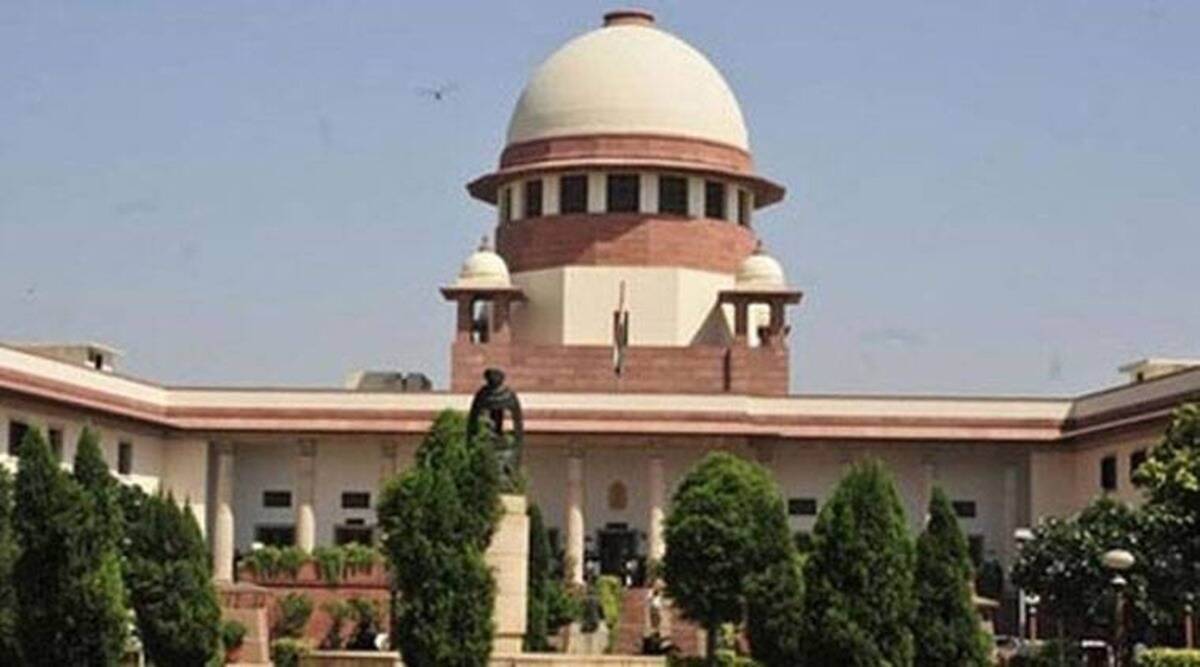 The plea was filed against the July 23, 2021 judgment of the Gujarat High Court dismissing the petitioner body’s prayer to declare the 2020 Covid-19 Guidelines on Dead Body Management, issued by the Union Ministry of Health and Family Welfare, as ultra vires the Constitution. (File)
The plea was filed against the July 23, 2021 judgment of the Gujarat High Court dismissing the petitioner body’s prayer to declare the 2020 Covid-19 Guidelines on Dead Body Management, issued by the Union Ministry of Health and Family Welfare, as ultra vires the Constitution. (File) Citing the risk of transmission of the novel coronavirus, the Centre has told the Supreme Court that it will not be permissible to alter the Standard Operating Procedures (SOPs) for disposal of dead bodies of Covid-19 victims so as to allow the Parsi way of letting the corpses decay in the open.
The Union Ministry of Health and Family Welfare said this in an affidavit filed in the apex court. The affidavit was filed in response to a plea by the Surat Parsi Panchayat Board seeking permission to perform dokhmenashini (last rites) in dokhmas of its members who died owing to Covid-19, as per their religious practices.
The Ministry pointed out that it had in consultation with the Indian Council for Medical Research (ICMR), issued guidelines for disposal of dead bodies of Covid-positive persons.
“The basic element of these guidelines is that the dead body will be fully covered and not exposed so that people who are handling the dead body, which may or may not include family members, must not come in contact with bodily fluids or secretions,” it said, adding that the “virus, according to scientific evidence emerged so far, can survive on a dead body, in bodily fluids, secretions and moist cells of the dead body for up to nine days.”
“A dead body will be considered as an inanimate surface and secretions from orifices will carry infected cells and will remain smeared on the body surfaces after death,” the affidavit pointed out and said that “appropriate handling of dead bodies of Covid-positive patients, therefore, remains critical from public health perspective.”
The government also said that the World Health Organization has noted that if a person died of Covid-19 while he or she was infectious, the lungs and other organs may still contain live virus even after death and recommended only cremation or burial for the disposal of such dead bodies.
The government also highlighted concerns about the possibility of the virus spreading to animals if not cremated or buried properly.
It said the OIE (World Organization for Animal Health) has observed that the people who are suspected or confirmed to be infected with the virus should minimise close direct contact with animals, including wildlife.
The OIE, it said had also “observed that several animal species have demonstrated susceptibility to the virus through experimental infection, and in natural settings when in contact with infected humans, although these infections are not the driver of the current Covid-19 pandemic which is human-to-human transmission. There is also evidence that infected animals can transmit the virus to other animals in natural settings through contact, such as mink-to-mink transmission, and mink-to-cat transmission” though “not all species appear to be susceptible to SARS-CoV-2”.
The government said the Organisation “has also noted that there are valid concerns about the establishment of SARS-CoV-2 reservoirs in wild or domestic animals, which could pose a continued public health risk and lead to future spillover events to humans. The virus introduction to a new animal species from a dead body might accelerate its evolution, which could potentially impact on surveillance and control strategies”.
“Keeping the dead body exposed (without cover) without burial or cremation will not be a permissible way of disposal of dead bodies of Covid-positive patients,” the Union Ministry contended.
The plea was filed against the July 23, 2021 judgment of the Gujarat High Court dismissing the petitioner body’s prayer to declare the 2020 Covid-19 Guidelines on Dead Body Management, issued by the Union Ministry of Health and Family Welfare, as ultra vires the Constitution.
Seeking dismissal of the appeal, the Health Ministry said that the high court had decided the matter “after detailed examination, and considering the threat to public health”.
- The Indian Express website has been rated GREEN for its credibility and trustworthiness by Newsguard, a global service that rates news sources for their journalistic standards.

